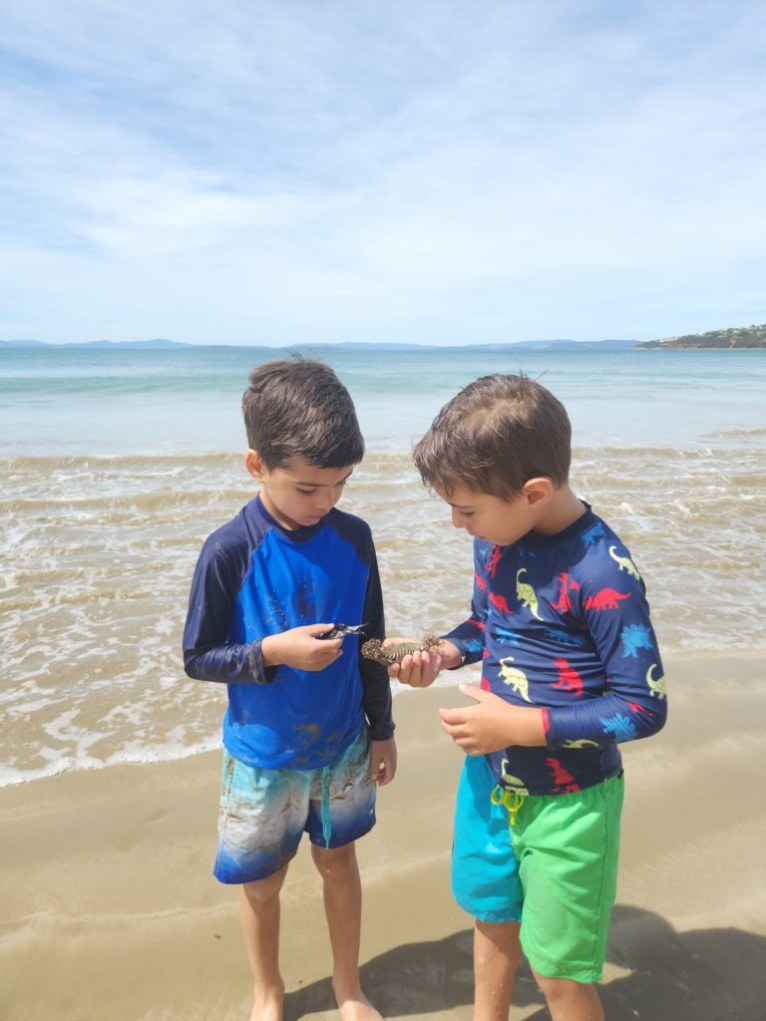Club Meeting May
Details
Tue 16 May 2023 20:00 — 21:45
Event information
This event has passed.
Hi Club Members & Guests,
I hope the diving has been great for you all over the past 4 weeks. The May Club meeting is forming.
This months guest speaker is: Helen O’Neill from CSIRO’s Australian National Fish Collection, who works on the egg case project. She’s based in Hobart and leading the hunt.
https://www.sharktrust.org/greateggcasehunt
Hear About:
Sharks and their cousins - rays, skates and chimaeras - have very diverse ways of reproducing. These ways include:
- multiple paternity, where the litter has more than one father
- parthenogenesis, where the litter has no father at all
- adelphophagy, where baby sharks eat each other in the womb
- oviparity, egg laying
After hatching, their egg cases wash up on beaches, where they may be mistaken for seed pods or marine creatures.
The mysterious purses of mermaids
Also known as mermaids’ purses, egg cases come in many different shapes and colours. They range from cream and butterscotch to deep amber and black, and between four and 25 centimetres long. Some have a smooth, simple appearance. Others have ridges or keels. Some have curling tendrils that anchor them to kelp or coral. Port Jackson sharks have corkscrew-shaped egg cases that they wedge into rocks. Incubation time ranges from a few months up to three years, depending on the species. By the time an egg case washes up on a beach, the embryo has likely already hatched or died prematurely. Some are preyed upon by creatures like sea snails, who can bore holes in them and suck out the contents.
Each different species' egg case is unique. This is helpful in taxonomy, the science of describing and naming species.
Egg cases in the fish collection
At our Australian National Fish Collection in Hobart, we are matching egg cases to the species that laid them. They are important for understanding the basic biology of oviparous chondrichthyans. They can also reveal valuable information, such as where different species live and where their nurseries are located.
Helen O’Neill is a fish biologist at the collection.
"We borrow egg cases from other collections, museums and aquariums around the world. We also have our own specimens collected from fish markets, surveys at sea or extracted from the ovaries of preserved specimens in our collection," Helen said. "Citizen scientists’ sightings on beaches will help us discover what the egg cases of different chondrichthyans look like. Some species are still unknown."
The Great Eggcase Hunt
The Great Eggcase Hunt is an initiative of UK-based charity The Shark Trust. It began in the UK 20 years ago and has since recorded more than 380,000 individual egg cases from around the world.

We teamed up with The Shark Trust to launch The Great Eggcase Hunt Australia.
We've contributed information to help people identify the egg cases of Australian species by looking at the size, shape and different features.
The Great Eggcase Hunt is suitable for everyone from children to seasoned beachcombers and divers. Record your sightings via The Shark Trust citizen science mobile phone app (Android or Apple) or through the project website.
Following the presentation will be the photo competition, events, news and travel.
Attendance and Registration
The meeting will be held at The Clare Castle, 354 Graham St, Port Melbourne, VIC 3207. Meet at 7pm for dinner. Meeting will start at 8pm.
If you wish to attend in person, you must register HERE (the room is limited)
If there are insufficient numbers of registered attendees by 12pm (noon) on the Monday prior, we will cancel the live meeting.
If you wish to attend via zoom, the login in details are:
Link: https://us02web.zoom.us/j/85880558681?pwd=WFpqZ2pCTmpNNS9NZ3NDWGoyTHBHdz09
Meeting ID: 858 8055 8681
Passcode: 021427
If you are attending via zoom, there is no need to register.
The Committee and I are looking forward to seeing you.
